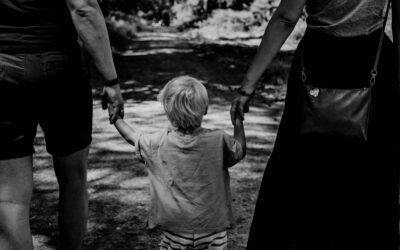
Our current reality is a scary and stressful place. I understand how easy it is to get caught up in so much stress and anxiety that you want to lash out at anything that you don’t like. What scares me the most, personally, is knowing and witnessing that people would rather criticize the methods of standing up for what’s right rather than standing with the oppressed. Let me preface by saying that I’m not telling you how to feel or what to think, or to feel ashamed. I am, however, here to provide evidence for what I believe is the way God calls His followers to love others. The most significant issue plaguing us today is, “how do we treat our fellow man?” I believe that the way I’ve seen my fellow man treated would disappoint God. It seems that in this time of pain and suffering, we have forgotten that our capacity to understand and love, our empathy, is the greatest asset in our walk with God. “Above all, love each other deeply, because love covers a multitude of sins.” (1 Peter 4:8 NIV)
In the New International Version of the Bible, which is the one I use, the word “love” appears 551 times. “A new commandment I give to you: Love one another. As I have loved you, so you must love one another. By this all men will know that you are my disciples, if you love one another.” (John 13:34-35 NIV) Love is the core of God’s actions and why we still exist. The best way to live for God is to live with love in our hearts for everyone. Not just the people we like.
I’m sure we all know what Jesus said was the greatest commandment. For the sake of context, however, it bears repeating: ““Teacher, which is the greatest commandment in the law?” Jesus replied: “‘Love the Lord your God with all your soul and all your mind.’ This is the first and greatest commandment. And the second is like it” ‘Love your neighbor as yourself.’ All the Law and the Prophets hang on these two commandments.”” (Matthew 22:36-40)
Jesus Himself said that these commandments were more important than any other rule or declaration in the Bible. It’s important to note that the Pharisee did not ask about the second greatest commandment, only the greatest. Yet, Jesus felt it was necessary to speak of the second greatest. The greatest commandment cannot be without the second greatest. He said, “All the Law and the Prophets hang on these two commandments.” One cannot love God and hate their fellow human. The center of God’s Law is love. Even a Pharisee began to understand: “To love him with all your heart, with all your understanding and with all your strength, and to love your neighbor as yourself is more important than all the burnt offerings and sacrifices.” (Mark 12:33)
““…but let him who boasts boast about this: that he understands and knows me, that I am the Lord, who exercises kindness, justice and righteousness on earth, for in these I delight,” declares the Lord.” (Jeremiah 9:24 NIV)
It is not God’s will that we sequester ourselves on our mountains of self-righteousness, throwing out jokes and gestures at the opposing viewpoint, trying to make martyrs of ourselves. This type of behavior doesn’t accomplish anything, as it only ever reaches people who already agree with it and prematurely shuts out people who disagree. Pharisees, who preached similarly (just without memes), criticized Jesus for hanging out with tax collectors and sinners. “On hearing this, Jesus said, “It is not the healthy who need a doctor, but the sick. But go and learn what this means: ‘I desire mercy, not sacrifice.’ For I have not come to call the righteous, but sinners.”” (Matthew 9:12-13 NIV) No one heals by being shut out. Pointing out things you don’t agree with and laughing about how you’re going to spite them accomplishes nothing in God’s name.
“[…] “Any kingdom divided against itself will be ruined, and a house divided against itself will fall.”” (Luke 11:17 NIV) We are, as people created by God, one house. We must love each other as those within our home, or, as the Lord says, our neighbors. I know that none of us agree with every single thing our family members say, do, or believe, but they are still family. With the advent of the internet, the greatest obstacle to empathic love has continued to inflate to an immense degree: the illusion of us vs. them. The internet is not the problem here, but how it’s been used has fanned the flames of division. But there is no “them” to battle. We are all one people. Not to say that things like race, location, political parties, etc. don’t matter; they do, as experiences that shape who we are as people. They should not, however, be dividing walls that we check over because we think “they’re coming to take away my <blank>.” “They” are “us,” and that can only fully come about with empathy that comes from listening, understanding, mercy, and love.
We must empathize before we criticize, and we need to apply this to everyone and any kind of “other” that exists. Jesus loved and accepted the outcasts, the ignored, the hurt, and the rejected. Jesus loved the “other” whom society deemed unworthy and unclean. He criticized those in power, not because of their political position, but because they blinded themselves to the plights of those the law demanded they help. When He criticized, it was always constructive so that the receivers would improve, and never to tear them down. It’s not about whether or not we agree with others’ lifestyles or choices. If we do anything to treat others as “less than,” then we are no different from the Pharisees, and we betray God’s greatest commandments. This “less-than” treatment includes suffocating people, denying them their rights as humans, ignoring their struggles, trying to act like we’re better than that without making a real effort to understand, and so on. Nothing good has ever come from ignoring the plights of the weak and oppressed. God’s love begins with empathy; shouldn’t ours?
“We know that we have passed from death to life, because we love our brothers. Anyone who does not love remains in death. Anyone who hates his brother is a murderer, and you know that no murder has eternal life.” (1 John 3:14-15 NIV) “But love your enemies, do good to them, and lend to them without expecting anything back. Then your reward will be great and you will be sons of the Most High, because he is kind to the ungrateful and wicked. Be merciful, just as your Father is merciful.” (Luke 6:35-36)



